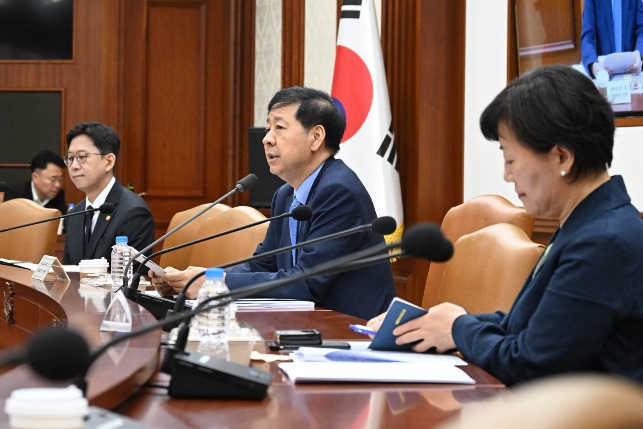### **A Crucial Trade Meeting Between South Korea and the U.S.**
This week, South Korea’s finance minister will engage in significant discussions with his U.S. counterpart in Washington, marking the first official trade negotiations under the newly elected President Lee Jae-myung. This meeting isn’t just a formality; it occurs as both nations hustle to finalize a trade deal before heavy tariffs kick in on August 1.
### **Key Players at the Table**
Koo Yoon-cheol, Korea’s Deputy Prime Minister and Minister of Economy and Finance, confirmed the dates for a “2+2” meeting set for July 25. He will be joined by Trade Minister Yeo Han-koo, while on the U.S. side, Treasury Secretary Scott Bessent and U.S. Trade Representative Jamieson Greer will lead the discussions. This marks the second round of bilaterals but notably, it’s the first under President Lee’s administration, which began office following the abrupt exit of former President Yoon Suk Yeol.
### **The Deadline Looms**
With just days until the August 1 deadline, both nations are racing against time. The U.S. has spotlighted countries with current account and trading surpluses, including South Korea, and warned of imposing a hefty 25% tariff on nearly all South Korean imports unless a mutually beneficial trade agreement is reached. South Korean officials are understandably anxious, knowing that the imposition of such tariffs could devastate major sectors like automotive manufacturing.
### **Focus on Tariffs**
The potential 25% tariffs are separate from previous tariffs instituted on steel, aluminum, and automotive parts earlier in the year. This looming deadline necessitates South Korean officials to prioritize reductions, not only in the sweeping reciprocal tariffs but also in product-specific duties that threaten to disrupt local manufacturers.
### **Broader Challenges Ahead**
The tariff debate is just one facet of the conversation. Key trade issues such as concessions in the agro-livestock sector are anticipated to surface. This topic is particularly sensitive in South Korea, where local farmers are expected to voice strong opposition to any concessions made to ease U.S. market access. The U.S. has also long sought to address non-tariff barriers, including South Korea’s import ban on American beef from cattle older than 30 months due to concerns over mad cow disease.
### **Geopolitical Considerations**
During these talks, broader geopolitical topics may also arise, including discussions around the U.S. military presence in South Korea and cost-sharing arrangements—elements that could significantly impact the overall outcome of the negotiations.
### **Building on Previous Dialogues**
The meetings this week follow an initial round of discussions held in April, where former officials from both sides laid the groundwork for future negotiations. At that time, they agreed to work towards a comprehensive tariff-liberalization package, emphasizing the importance of collaboration under changing administrations.
### **A Unified Front**
In light of the impending deadline, Minister Koo indicated that all relevant departments within South Korea are uniting efforts to forge a practical and coordinated strategy for the nation’s overall interests. While specific strategies remain closely guarded, the urgency of the situation drives home the significance of these upcoming discussions.
### **High Stakes for the Future**
As the clock ticks down to August 1, the stakes couldn’t be higher for both nations. The outcome of these trade discussions could shape not only economic relations between South Korea and the U.S., but also have lasting effects on the global trade landscape.


